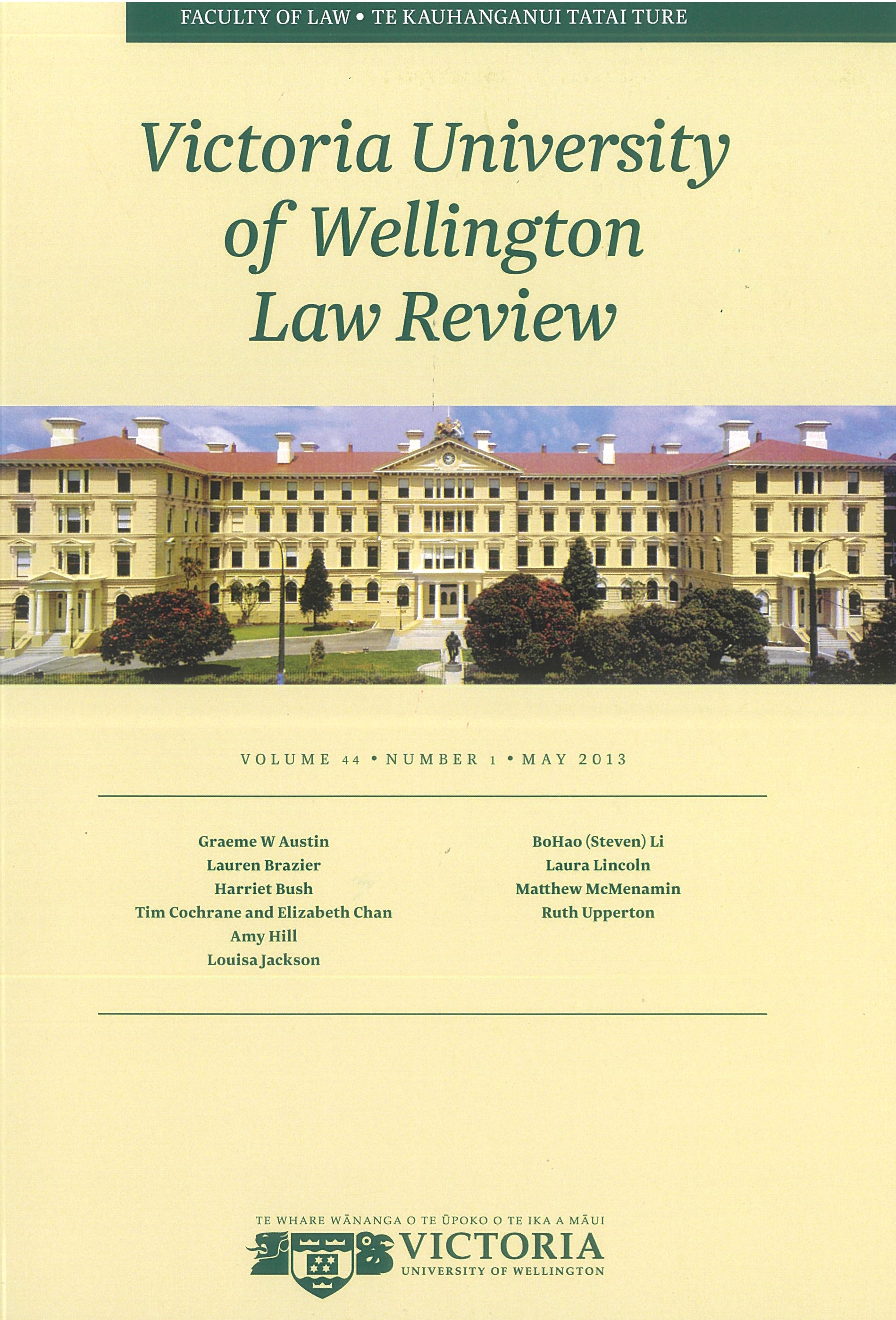Takamore v Clarke: An Appropriate Approach to the Recognition of Maori Custom in New Zealand Law?
DOI:
https://doi.org/10.26686/vuwlr.v44i1.5006Abstract
This article reads as an extended case note on the majority judgment of the 2011 Court of Appeal decision, Takamore v Clarke. This case highlighted the tension between the application of the common law relating to burial and the application of Māori custom, and presented the Court of Appeal with difficult questions regarding the recognition of Māori custom by the common law. The majority treated Māori custom as analogous to English local custom, calling for the custom to meet a list of requirements in order to be recognised as part of the New Zealand common law. The Court held that Tūhoe burial custom did not meet all of the requirements for recognition and so could not be recognised. Nevertheless, with the view that custom should still be taken into account, the Court proposed a "more modern" approach to customary law. This article begins by considering the appropriateness of the analogy drawn by the Court to English local custom, with reference to the historical judicial application of Māori custom in New Zealand. It then critically analyses the application of the authorities cited by the Court. Finally, this article explores the effect of the majority's "more modern" approach on the treatment of Māori custom in New Zealand law. The article contains a postscript pertaining to the Supreme Court's more recent decision.
Downloads
Downloads
Published
How to Cite
Issue
Section
License
Authors retain copyright in their work published in the Victoria University of Wellington Law Review.


